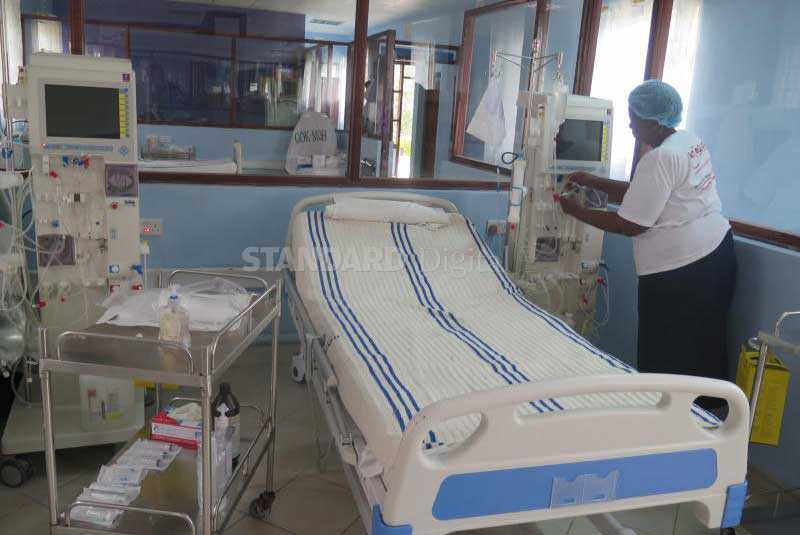
Doctors’ reluctance to work in rural areas might be the reason why the government sealed a deal with Cuba to import 100 specialists.
Health Cabinet Secretary Sicily Kariuki has lamented that whenever doctors are posted in the interior parts, they protest and request transfers to major towns.
And due to their reluctance, some counties have been left with no health specialists leaving patients to be treated by general physicians.
Mandera, Marsabit, Vihiga and Wajir are the four counties that have no single health specialist currently working in the area according to Medical Practitioners and Dentists Board (MPDB).
The deal between Kenya and Cuba will see each county get at least two specialists. In return, the Ministry will train a total of 50 doctors-at least one doctor in every county in Cuba in family medicine.
This is apart from Cuba supporting the Kenya Medical Training College to develop local programmes for training community health workers, clinical officers and nurses in family medicine.
CS Kariuki said the entry of the 100 Cuban doctors, which has been opposed by Kenyan medics should not be exaggerated.
“Let it also not be lost on the public that the government has continually posted doctors across the country on a needs basis,” said Kariuki. “However, most doctors that have been posted to hardship regions seek transfers to urban areas with others resigning from the public health sector altogether.”
Kariuki said the importation does not also mean that the government will stop training specialists in the country.
But the Kenya Medical Practitioners Pharmacists and Dentists Union (KMPDU) Chair Dr Samuel Oroko argued that doctors cannot be blamed when they move out of the interior areas as majority of the facilities in the area do not have medical equipment.
“Lack of these equipment means a doctor is posted to an area and ends up being paid without working. The best thing is to quit and come to regions where the facilities are available,” said Oroko.
Some of the equipment, he noted, include full functioning theatres, enough Intensive Care Unit beds, Computed Tomography(CT) scans and Magnetic Resonance Imaging(MRI) machines, stand by generators (for power) and enough oxygen supply.
Oroko also noted that Kenya has been slow and probably reluctant in training of specialists. He gave an example of Wajir county that does not have an orthopedic surgeon, that takes five years to train.
If such a specialist was trained immediately devolution set in in 2013, the country will be equipped.
“Counties have not been proactive in staff development. It is time they relook into their deficit and train doctors according to their need basis,” he said.
KMPDU has also claimed that there 2,000 doctors among them 171 specialists that the government is yet to absorb.
The Cuban specialists will comprise of nine critical care physicians, three cardiologists, five orthopaedic surgeons, three plastic surgeons, five nephrologists, three urologists, one neurosurgeon, two endocrinologists and 53 family physicians.
 The Standard Group Plc is a multi-media organization with investments in media
platforms spanning newspaper print
operations, television, radio broadcasting, digital and online services. The
Standard Group is recognized as a
leading multi-media house in Kenya with a key influence in matters of national
and international interest.
The Standard Group Plc is a multi-media organization with investments in media
platforms spanning newspaper print
operations, television, radio broadcasting, digital and online services. The
Standard Group is recognized as a
leading multi-media house in Kenya with a key influence in matters of national
and international interest.











